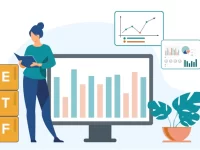Options for Africa to Deepen Financial Inclusion and Development

When folks might have fun playing the economical climates, they are better suited to start and expand companies, purchase their children’s education, and absorb financial shocks.
Sub-Saharan Africa features a population with lots of lives remaining in the economical downstream, and lots of likely underdeveloped. The financial inclusion gender gap and earnings gap persisting similar to in other continents, though greater in Sub-Saharan Africa. World Population estimates using the latest estimates released on June 21, 2017, with the United nations, shows Africa continues because the second greatest continent getting a population of a single,256,268,025 (16% of individuals around the world) through the finish from the month of the month of january 2018, 40.2% surviving in metropolitan areas.

The continent gets the finest fertility rate of 4.7% (Oceania 2.4%, Asia 2.2%, Latin American and Caribbean 2.1%, Northern America 1.9% and Europe 1.6%) in comparison with other continents getting an annual population rate change (increase) of two.55% – the finest of continents. Nearly all its people (59.8%) have resided downstream (rural areas and villages) sometimes in the mainstream economy. Policy targeting may be difficult such scenarios, and identifying those who lack utilization of financial and economic inclusion includes a huge financial cost alone, even though the benefit using this method outweighs the cost in just figures and requires commitment from leaders and managers in the particular economies. Plus a universal phenomenon of non-perfect, untrusted, and possibly non-existing data round the continent, that could make selection imperfect and understanding difficult to depend on, affecting plans, policies as well as the potencies to resolve pointed out challenges or growing the social and economic fibre of nations.
The struggles in the financially excluded result from barriers and reasons as access, social and cultural factors, earnings, education and a lot of possible lists of others. Financial exclusion possibly is probably the reasons some economic policies lack potency to effectively target well round the citizenry having its results in persistent poverty and inequality. Inadequate utilization of fundamental needs being an account either staying with you or mobile money can frequently mean significant options of options untapped. Globally countries have recognized the value of achieving inclusive societies and supports efforts at maximizing financial inclusion. Sub- Saharan Africa makes some strides over time in financial and economic inclusion in this connection at individual country levels.
Efforts ongoing in Ghana add a persistence for promoting and prioritizing financial inclusion. The country made specific and concrete commitments to assist advance financial inclusion beneath the “Maya Declaration“ since 2012 and contains an ambitious target of achieving 75% Universal financial inclusiveness of the adult population by 2020. Ghana is now offering 58% of the adult population getting utilization of financial services which is finalizing its National Financial Inclusion Strategy which will finish up to be the guiding document and reference for inclusive actions, stakeholder roles and responsibilities spelt out for individuals.
Kenya, however, has earned global recognition in primary others in the world in mobile money account transmission, with twelve other sub-Saharan African Countries following, researchers show. The rate where African countries are projecting innovation technology for digital financial inclusion is impressive. The country makes giant strides within the financial inclusion commitments, especially beneath the Maya Declaration.
There is some paradigm change in Information and Communication Technology which is importance that’s being considered being an issue of financial growth. ICT has the capacity to provide services with minimal cost, improve innovation, and offer infrastructure for convenient and easy to use services, this may also provide a road to access many auxiliary financial services.

Within the macro level, digital innovation influence economic development and economic policy effectiveness.The benefits ICT enabled financial services are the possible growth and development of employment- mobile money vendors, increases in revenue receipts of presidency, helps firms productivity (both private and public), assist with cost control and efficiencies, and can lead to rural development and governance: Governance and revenue mobilization efforts, especially at town levels, might be enhanced through ICT which will help with overall improvement in corporate governance. Importantly, Innovation Technology may help inside the deepening of financial inclusion most likely through access, usage, reducing risk and improving quality of services, thus, per formula for Financial Inclusion (FI), thus, FI = (Unlocking Access Unlocking Usage Quality) – Risk.






